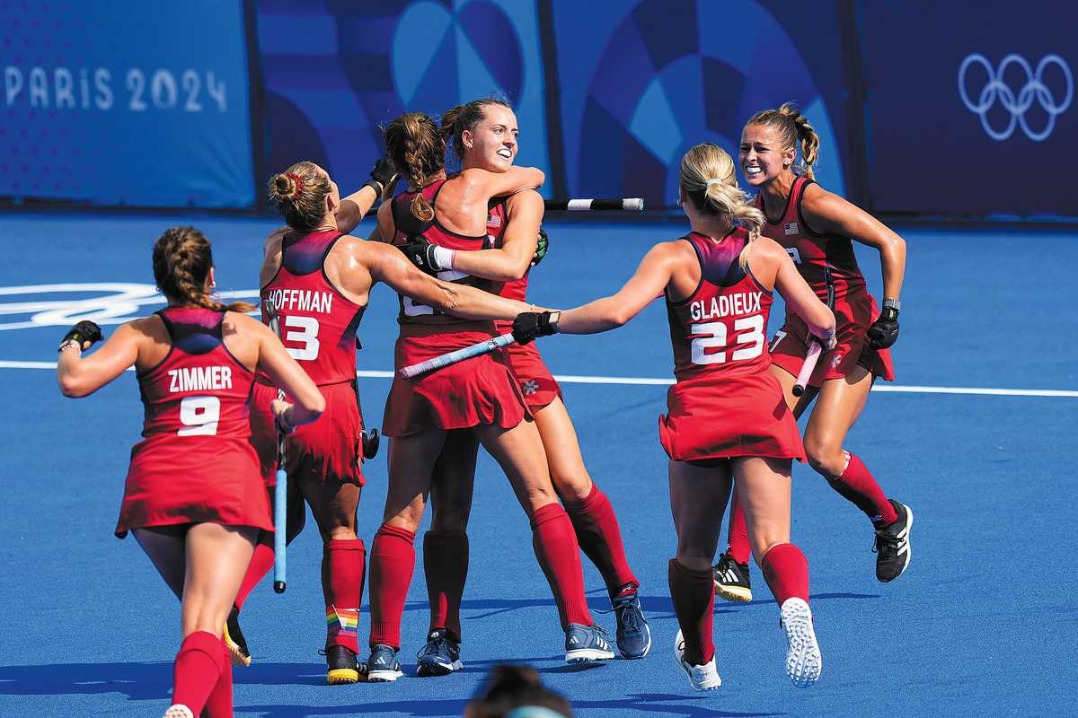A poetic farewell

Closing ceremony promises to be a party packed full of Chinese culture, music and love
As the curtain prepares to fall on the six-day 4th Asian Para Games on Saturday, the continental sports gala will bid adieu to the participants and everyone involved with a poetic party, filled with Chinese culture, music, and, above all, love, according to the creative team of the Para Games' closing ceremony.
The ceremony will be a show of China's love for its friends, and Asian camaraderie, said Sha Xiaolan, chief director of the closing ceremony, at a media briefing on Thursday.
"We will be drawing on the finest traditional Chinese rites and rituals in seeing off our beloved friends," revealed Sha, who was also the chief director for the opening ceremony.
One of the traditions is presenting poems as gifts when friends part ways.
In ancient China, it was customary to write poetry for friends departing on a journey, especially among poets and literary figures, to show their affection, longing, melancholy, among a slew of other emotions.
The costumes and choreography for the closing ceremony have been designed and created in such a way as to showcase the beauty and imagery of Chinese poetry, according to Sha.
In one scene, the performers will collectively recite lines from the verse Bie Li, or "Parting", by renowned Tang Dynasty (618-907) poet Lu Guimeng.
"It will be full of Chinese-style romance," said Lyu Yuan, chief writer for both the closing and opening ceremonies.
The romance will fully manifest itself in the performance entitled "Tea for Farewell".
Serving tea to guests is a time-honored Chinese tradition, explained Lyu, and more than 3,000 years ago, tea had already become a token of friendship and an item of tribute.
Both the West Lake Longjing tea production and the Jingshan tea ceremony — elements of China's traditional tea-processing techniques and associated social practices that are inscribed on UNESCO's Representative List of the Intangible Cultural Heritage of Humanity — originated in Hangzhou, the host city of the Asian Para Games.
"Through artistic renderings of Chinese tea culture, we hope to take the purest water and brew the best tea for our finest friends," said Sha.
Over the course of the entire show, traditional Chinese musical instruments, including di (Chinese flute), xiao (vertically played bamboo flute) and guqin (a plucked seven-string instrument) will feature prominently and, alongside orchestral music, the spectators will enjoy a fusion of Chinese and international music, both traditional and modern, with a distinctive Jiangnan charm, Sha added.
Throughout the Para Games, a philosophy of inclusion has always been at the forefront, and that will continue to be the case during the closing ceremony, with a total of 213 people with disabilities taking center stage during the artistic performances.
"They have put in more effort than able-bodied performers, and brought us many surprises," Sha said. "We have witnessed their high self-confidence and energy."
Unlike the opening ceremony, no advanced technology will aid the extinguishing of the main cauldron.
Instead, as the flame dims, a community service worker who narrates films for the visually impaired will describe the process to a group of children with visual impairment, while they sit on the stairs around the main cauldron.
"This is unprecedented," said Sha.
"More importantly, we hope that everyone can equally share and soak up the glory and love as the flame is being extinguished," he said.
Planned to run for about 55 minutes, the closing ceremony will officially begin at 7:30 pm on Saturday inside the Hangzhou Olympic Sports Centre Stadium.
Most Popular
- Embiid stands tall against Celtics, despite pregame fall
- Wemby scores 42 in a memorable Xmas debut, but Spurs fall short
- Mahomes throws 3 TDs as Chiefs clinch top seed
- Littler is a big deal
- Thohir determined to take Indonesia back to World Cup
- All-Filipino crew set to make history































